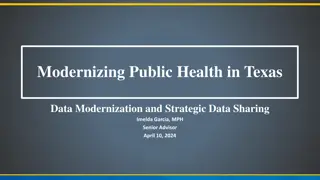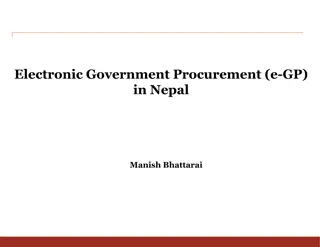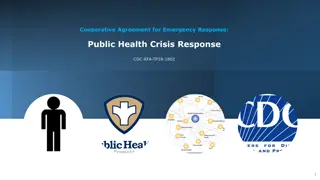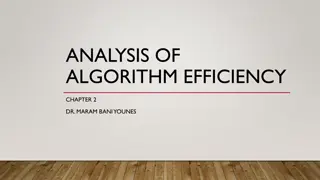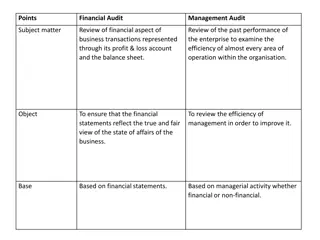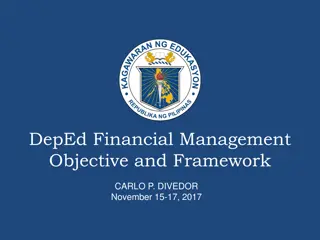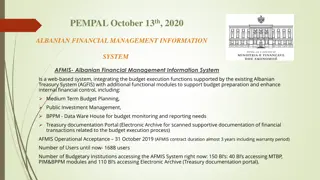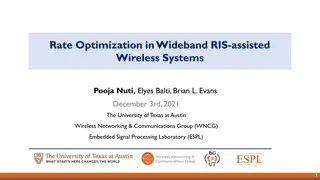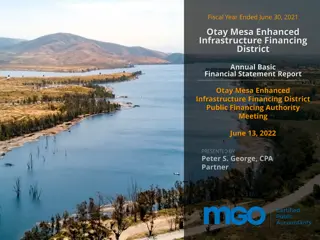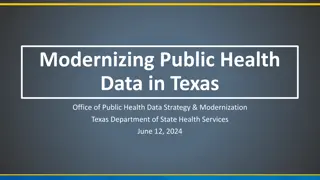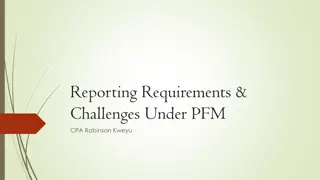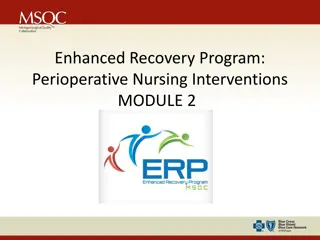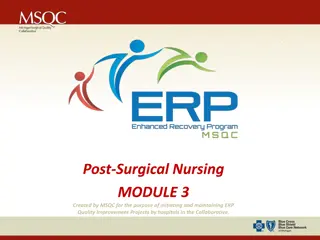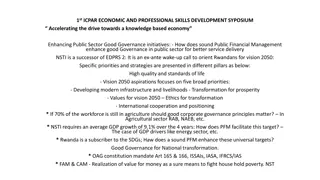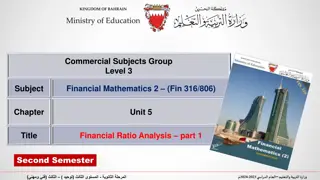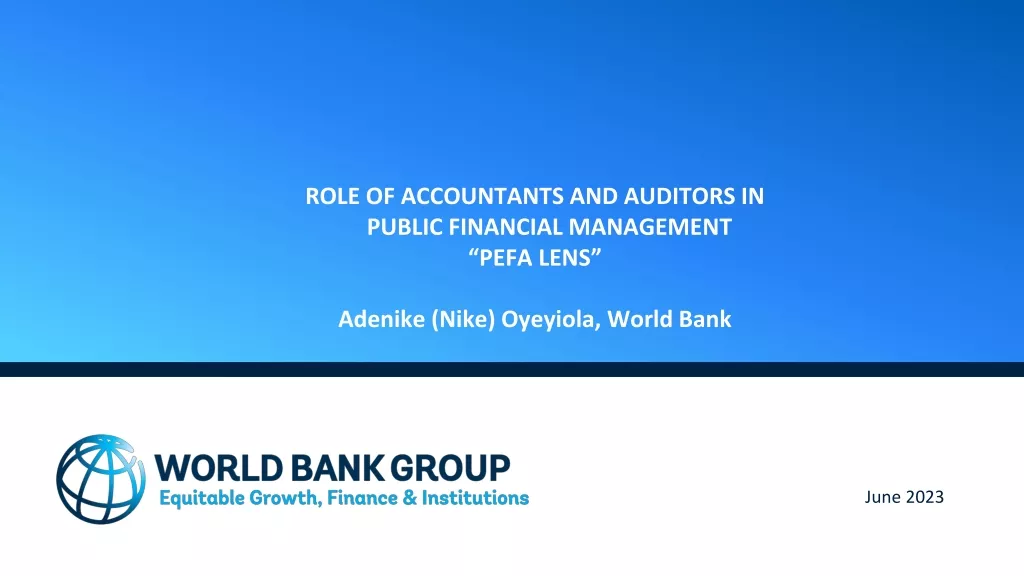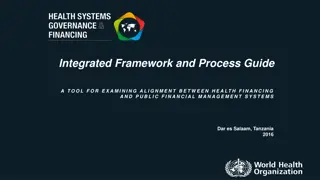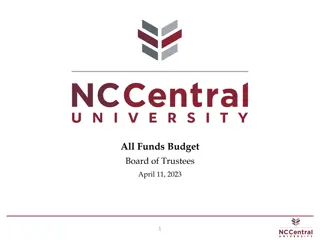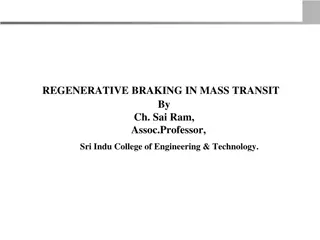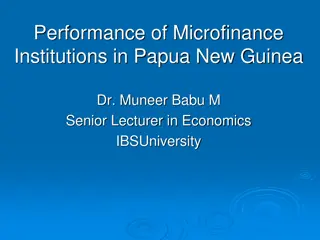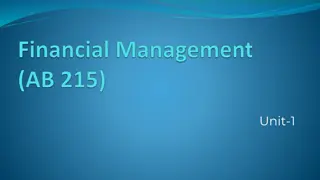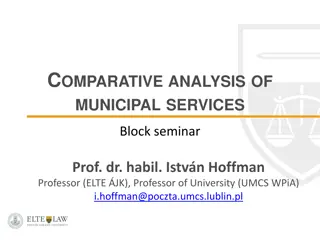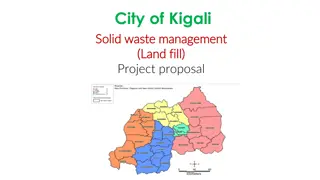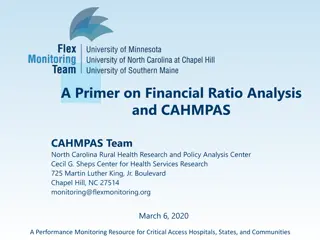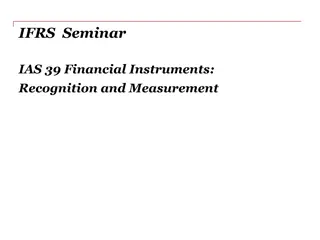Modernizing Public Financial Management Systems for Enhanced Efficiency
This content discusses the implementation of an Integrated Financial Management Information System (IFMIS) to improve revenue mobilization, budget execution, and government financial transparency. It covers the objectives of the new IFMIS, including fiscal discipline, improved budget planning, and enhanced monitoring of financial execution. The project deliverables include reports on current processes, IFMIS models and options, and technical requirements. Additionally, it outlines various components like e-Budget, TRIS, and e-Treasury aimed at streamlining budget planning, liability management, and treasury operations.
Download Presentation

Please find below an Image/Link to download the presentation.
The content on the website is provided AS IS for your information and personal use only. It may not be sold, licensed, or shared on other websites without obtaining consent from the author. Download presentation by click this link. If you encounter any issues during the download, it is possible that the publisher has removed the file from their server.
E N D
Presentation Transcript
Improved Fiscal Framework Revenue Mobilization Planning and Budgeting Implementation of new Integrated financial management information system (IFMIS) Budget Execution Transparent Government Reporting Internal Control External Control and Parliamentary Oversight
New OBL IFMIS Objectives Preparation of a multi annual forecast and The main objective of IFMIS development is to planning of the budget improve the efficiency of PFM operations by Establishing a link between the strategies, transitioning from existing fragmented and policies and the budget disconnected systems to a centralized web- Adopting fiscal discipline through a fiscal rule based shared platform benefiting from the and Fiscal Council latest digital technologies. Introduction of the new IFMIS system and its New IFMIS is expected to support the ability to control commitments and other fiscal implementation of new Organic Budget Law risks/issues (OBL) by broadening the scope of budget Improving coverage and quality of the financial execution monitoring and fiscal reporting, reporting covering all stages of the expenditure cycle Ensuring transparency and citizens access and (from procurement to payment), tracking all use of budgetary documents (web portal) budget users, and obtaining a consolidated Strengthening the financial management picture of the public spending on a timely basis controls and Internal Audit Broaden the scope of the External Audit
Deliverables from the project: AS-IS report describes the current business processes in use within public finance sector, individual IT systems and emphasizes the need to establish an integrated public financial management system. IFMIS Model and Options report - describes the options for an integrated system, as well as the modules that would contain it. The options were: 1. Shared IFMIS platform and web portal; 2. Decentralized IFMIS operations; 3. Hybrid IFMIS platform i.e not procurement of a completely new system, but to maintain the existing basic modules, to upgrade their functionalities and to integrate the processes in the MoF, and to establish a connection of the system with the systems of other relevant institutions). IFMIS Functional and Technical Requirements - this is technical documentation for the new IFMIS, with a detailed description of all business processes and functionalities of the moduls to be contained in the new IFMIS.
e-Budget(Budget Planning System (e-Circular), e-Liability and Multi-Year Budget Preparation System (e-Budget) TRIS-Treasury information system (original registers module, financial plans module, commitments management module, reporting module, payment system module, budget execution and funding allocation module,archive management module (ancillary)) TrIS Interfaces (interface with the National Payment System; Customs Office, Public Revenue Office, Pension Insurance Fund and Health Insurance Fund) e-Treasury (e-Commitments and e-Payments) e-Debt (for public debt management, debt projections, debt stock reporting and government securities) FAMA (Foreign Assistance Management Application) Other PFM Systems and Interfaces (revenue management, e- Procurement, HRMIS/Payroll, PFM information systems of MDAs (specific systems of Ministries, Departments and Agencies).
Preferred Option: Hybrid IFMIS Platform and Web Portal Hybrid IFMIS platform where core PFM modules can be available via shared IFMIS platform and web portal to the budget users and several other functions can still be decentralized but connected to the shared platform through web portal/interfaces. Shared IFMIS modules supporting most of the budget users online IFMIS Scope: 1,360+ Institutions and 6,000 Users from Central and Local Government
1. PBM > Planning and Budgeting Module BPM > Multi-Year Budget Preparation PIM > Public Investment / Project Management MPC > Monitoring of Projects and Contracts REG > Management of registries & budget classifications BEX > Budget Execution Module MBA > Management of budget allocations MEX > Management of expenditures MRE > Management of receipts CCM > Commitment control & management CFM > Cash forecasting and management ACC > Accounting / General Ledger OTH > Other PFM Modules PDM > Public Debt Management FAM > Fixed (& Financial) Asset Management TGR > Transparent Government Reporting OBD > Financial reports/ Open Budget Data (generated from IFMIS) New DWH > Data warehouse, BI tools, Web Portal INT > Interfaces with other PFM Systems Replace e-Budget, e-Circular New Enhance FAMA New 2. Replace e-Commitments Replace TrIS Replace TrIS Replace TrIS New New 3. Replace e-Debt New 4. New New 5.
Proposed IFMIS Model e-Budget & e-Circular IFMIS = B + T + O Policy Development and Review Budget Preparation New and enhanced modules will be combined for a hybrid IFMIS Public Investments Audit and Evaluation Mgmt of Budget Authorizations DW Commitment of Funds TrIS & e-Commitments Fiscal Reports & Budget Review IFMIS DB ESPP General Ledger Accounting Procurement / Purchasing Web Portal / DW Publish / Monitor Daily Open Budget Data e-Tax & e-Customs e-Debt Operations Debt and Aid Management Payments and Receipts Mgmt Tax and Customs Treasury Single Account Asset / Inventory Mgmt Cash Payroll Calcs HR Mgmt HRMIS Management Market Operations / Securities
Improve the efficiency of business processes Preparation of a multi-annual forecast and planning of the budget Strengthen policy-based fiscal strategy and budgeting Introduce active cash management Ability to control commitments and other fiscal risks/issues Improvement in coverage and quality of financial reporting Introduce Public investment planning and management Improve the management of assets and liabilities Strengthen accounting and reporting Strengthen the transparency of public finances
Transparent Reporting Module Connectivity with Other Systems Planning and Budgeting Module Budget Execution Module Other Modules financial reports (Data Warehouse) - exchange of data with other systems within the PFM sector and other institutions (PRO, CU, Public Procurement Bureau, MISA and others). - sub-module on on- lending - - centralized database of registers and classifications - pre-commitment control user-friendly reports (dashboards) - - reports related to the public debt - medium term budgeting is strengthened - recording of invoices - active cash management - sub-module for guarantees - program budgeting (in principle program, project, activity) - accounting module - asset and liability management module - performance indicators - PIM modul (management and monitoring of public investment /project management module)
Finalizing technical requirements for IFMIS documentation Change management Advisory support and monitoring during IFMIS developments Preparatory activities for tender documentation March 2021 Jun-July 2021 July-Aug 2021 Q3 2021 November 2021 December 2021 Q1 2022 Q2 2022 Establishing IFMIS WG for coordination of preparatory activities Adopting OBL Establishing PIU WB Establishing IFMIS Unit Law on borrowing for IFMIS and ITIS IFMIS tender IFMIS tender / evaluation / selection of the solution provider Implementation Phase
IFMIS developments continue during the pandemic (the pandemic affected the timing of the project, but further emphasized the need for digitalization and integration of the PFM processes especially in this circumstances) PPB adjust the public procurement system with the opportunity to mark public procurements related to the COVID 19 Government create a website koronavirus.gov.mk in order to include data related to the crisis as: - health statistics, all economic measures, the records of all financial and non-financial donations received as to addressing the COVID 19 crisis, data on all individual payments from the Budget that are made within budget sub-program related to COVID 19 crisis (connectivity with open. finance portal and PPB system)



